I don’t know about you, but a good number of my current communities are one step away from reality — they only exist online. I have a Facebook community, which includes a good number of friends-of-friends that I’ve never met in person. I visit a set list of blogs every day and have a great time interacting with the authors and the other readers. While our definition of community might be expanding, I don’t think any of us have lost sight of the importance of a good, old-fashioned in-person community though.
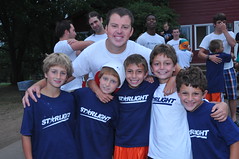 According to the American Camp Association, parents have identified the development of social skills/living in community (such as making new friends, getting along with others, becoming more responsible, and learning group-living skills) as one of the main reasons they send their children to camp. The owners, directors and staff at summer camp all understand the power of community and structure these skills into their programs in several areas.
According to the American Camp Association, parents have identified the development of social skills/living in community (such as making new friends, getting along with others, becoming more responsible, and learning group-living skills) as one of the main reasons they send their children to camp. The owners, directors and staff at summer camp all understand the power of community and structure these skills into their programs in several areas.
1. Communal Living
I am an only child, and as such, I always had my own room when I was a child, so living in a camp bunk for the first time was a huge learning experience. For the first time, I had to be part of a community of people who were sharing space, delegating work and working, communally, to make things work. It didn’t take long for me to get into the routine of doing my part and see how even the most menial job — mine was taking out the trash – contributed to the health of the community.
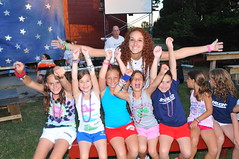 Bunkmates must also learn how to navigate the waters of communal decisionmaking. They must work through the inevitable issues and conflicts that come up in bunk living — and they must learn to adapt and get along when things don’t go their way. They learn to live by the will of the majority, while at the same time respecting the needs of others who represent the minority. Again, according to the ACA, “small group living also provides the necessary intimacy for individuals to achieve a sense of belonging, explore a variety of group roles, cooperate and form relationships with others, and have input into the group’s activities”.
Bunkmates must also learn how to navigate the waters of communal decisionmaking. They must work through the inevitable issues and conflicts that come up in bunk living — and they must learn to adapt and get along when things don’t go their way. They learn to live by the will of the majority, while at the same time respecting the needs of others who represent the minority. Again, according to the ACA, “small group living also provides the necessary intimacy for individuals to achieve a sense of belonging, explore a variety of group roles, cooperate and form relationships with others, and have input into the group’s activities”.
2. Eating and Singing Together
In the past few years there has been a large ad campaign promoting family dinners. Sitting around the dinner table sharing stories, concerns and the high and low points of your day with family members — or fellow campers — creates intimate bonds between all of the participants. Most camps have family-style meals and singing traditional camp songs together is often a ritual. Songs are always a founding piece of any culture and at camp, at the end of session when everyone knows the camp songs, they too become community bonds that live through the years.
3. Connections that Last
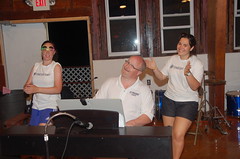 Although sometimes I am annoyed with how much of my life occurs online, there’s no arguing that modern social networking has helped nurture the lifelong friendships developed at camp. Now, instead of waiting days or week from a letter from a camp pen pal, you can send a text message, IM, or just nudge them on Facebook. Many camps have Facebook groups, some devoted exclusively to alumni from certain years, so the 50-somethings reminiscing about camp in the 70s can be a subgroup of a larger online camp community.
Although sometimes I am annoyed with how much of my life occurs online, there’s no arguing that modern social networking has helped nurture the lifelong friendships developed at camp. Now, instead of waiting days or week from a letter from a camp pen pal, you can send a text message, IM, or just nudge them on Facebook. Many camps have Facebook groups, some devoted exclusively to alumni from certain years, so the 50-somethings reminiscing about camp in the 70s can be a subgroup of a larger online camp community.
No matter how much time passes, the camp community lives on. Alumni have frequent get-togethers and are always welcome to spend a day visiting their old camp haunts. Many camps host reunions every year and invite alumni from different generations to come and visit together, creating yet another community, another branch of the family tree.
Want to get and stay connected with Camp Starlight? Check out our Facebook page!
How did you experience community at camp? How have you sustained it since? We’d love to hear your stories in the comments below!
Susan




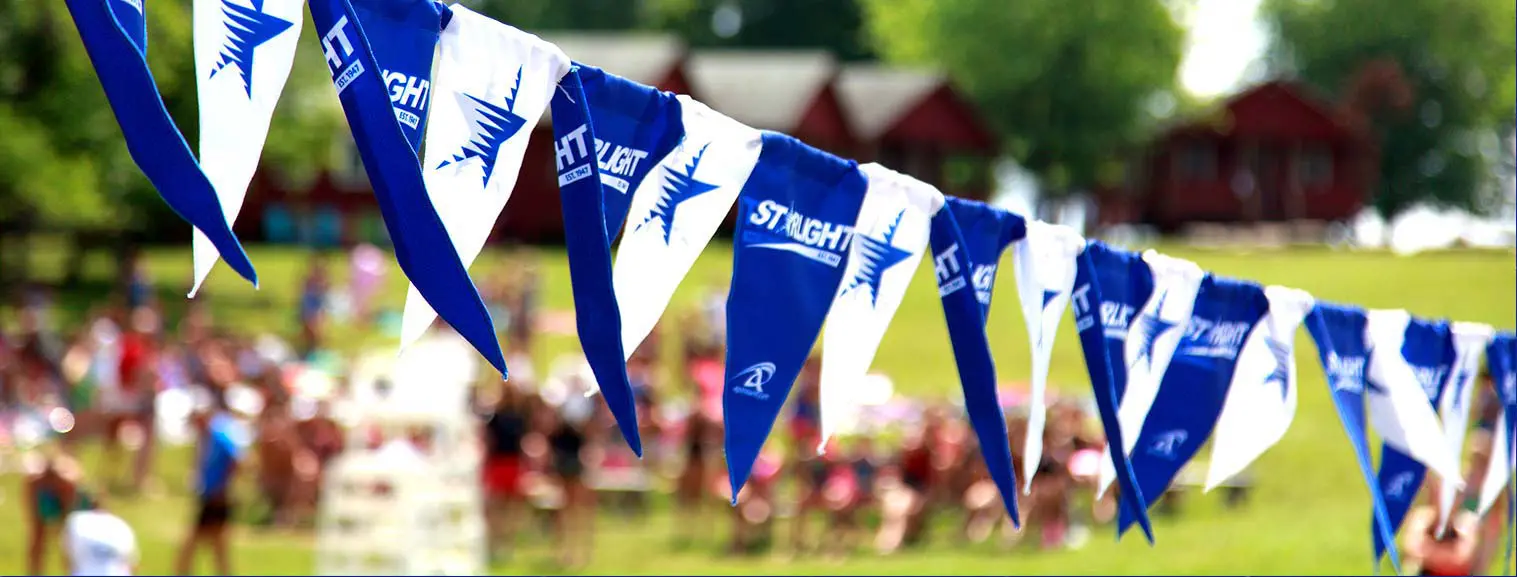
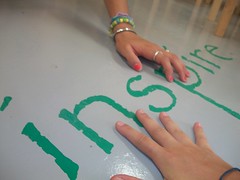 As parents, we are always on the lookout for experiences that help our children learn new skills. We enroll them in music lessons, martial arts, sports, theatre, choir and, of course, summer camps. But we all know that the best programs (and the best educational experiences) are ones that go beyond the basics of teaching skills to help develop our children’s character. The basics of
As parents, we are always on the lookout for experiences that help our children learn new skills. We enroll them in music lessons, martial arts, sports, theatre, choir and, of course, summer camps. But we all know that the best programs (and the best educational experiences) are ones that go beyond the basics of teaching skills to help develop our children’s character. The basics of 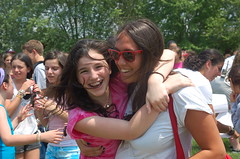
 “I felt like they were living a free life,” she says. The rules were there, just not stressful. This kind of independence creates the necessary space for the foundations of character to blossom. “I could not believe the person he had become – just a new person – totally confident in himself,” she says.
“I felt like they were living a free life,” she says. The rules were there, just not stressful. This kind of independence creates the necessary space for the foundations of character to blossom. “I could not believe the person he had become – just a new person – totally confident in himself,” she says.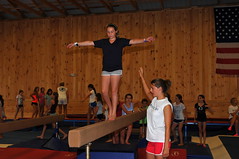 If you’ve been following this blog for a while, you know that we’ve focused a lot on how much fun kids have at camp — learning new sports; spending time with friends old and new; going on amazing trips; connecting with friends and counselors. But camp is also an educational experience for the children. We’re so used to education being “school” that it’s a real shift in perception to see lacrosse, tennis, living in a bunk, and other camp activities as education; but educational activities they are, as many parents can attest now their kids are back in school!
If you’ve been following this blog for a while, you know that we’ve focused a lot on how much fun kids have at camp — learning new sports; spending time with friends old and new; going on amazing trips; connecting with friends and counselors. But camp is also an educational experience for the children. We’re so used to education being “school” that it’s a real shift in perception to see lacrosse, tennis, living in a bunk, and other camp activities as education; but educational activities they are, as many parents can attest now their kids are back in school!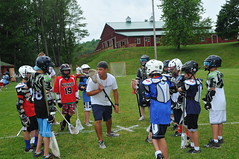 So what kind of difference can summer camp make to your child’s development? As the Executive Director of the
So what kind of difference can summer camp make to your child’s development? As the Executive Director of the 